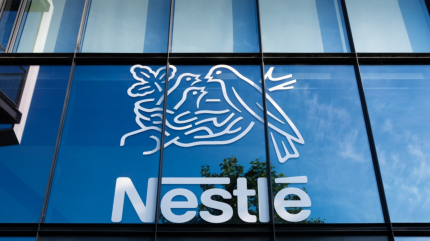
Nestlé has agreed a settlement and €2m ($2.2) fine with French authorities over claims of breaching laws on mineral water and illegal drilling.
The deal follows two investigations by prosecutors at the Épinal law courts in north-eastern France.
Nestlé was accused of using multiple purification treatments on bottled water that was labelled ‘mineral water’.
In France, it is illegal to use purification techniques on water products labelled ‘spring’ or ‘mineral’, as they are already considered safe to drink due to being sourced directly from protected natural springs.
The food and beverage giant previously stated it had used activated carbon filters and ultraviolet systems in the purification of its water brands, both of which are not allowed by French mineral water regulators.
A spokesperson for Nestlé said today (11 September) there was no harm to the public from the company’s treatment of the water, adding the “treatments previously carried out on the captured water had in no way altered the mineral composition of the marketed water”.
“Since 2023, all of Nestlé Waters Supply Est activities have complied with the regulatory framework in force and are in line with the latest directives given by the authorities,” the spokesperson added.
According to Nestlé, its Perrier, Vittel, Contrex and Hépar brands are now fully compliant with French laws on the production of natural mineral water.
Non-profit organisation Foodwatch has hit out at the Épinal prosecutors’ decision to allow Nestlé to enter a Public Interest Judicial Agreement (CJIP), arguing the company has escaped trial.
“This is a scandalous decision that sends a very bad message about the climate of impunity,” Foodwatch fraud expert Ingrid Kragl said.
“Nestlé Waters can deceive consumers for years all over the world and get away with it by simply taking out the chequebook. Given the seriousness and extent of the facts, the numerous violations of the public health code and the consumer code, it is unacceptable that this massive fraud is swept under the carpet in this way.”
The second investigation concerned Nestlé’s authorisation to drill for water in the Vosges mountains of eastern France. Nestlé sources water for its Vittel, Hepar and Contrex brands in the region.
Nestlé said its CJIP agreement “underlines” that its drilling operations in the Vosges basin were approved in 2019.
The group also said the CJIP set out commitments to local ecological projects in the region. Nestlé said it will “invest” €1.1m towards the renaturation of two watercourses, a project to be overseen by the French Office for Biodiversity.



